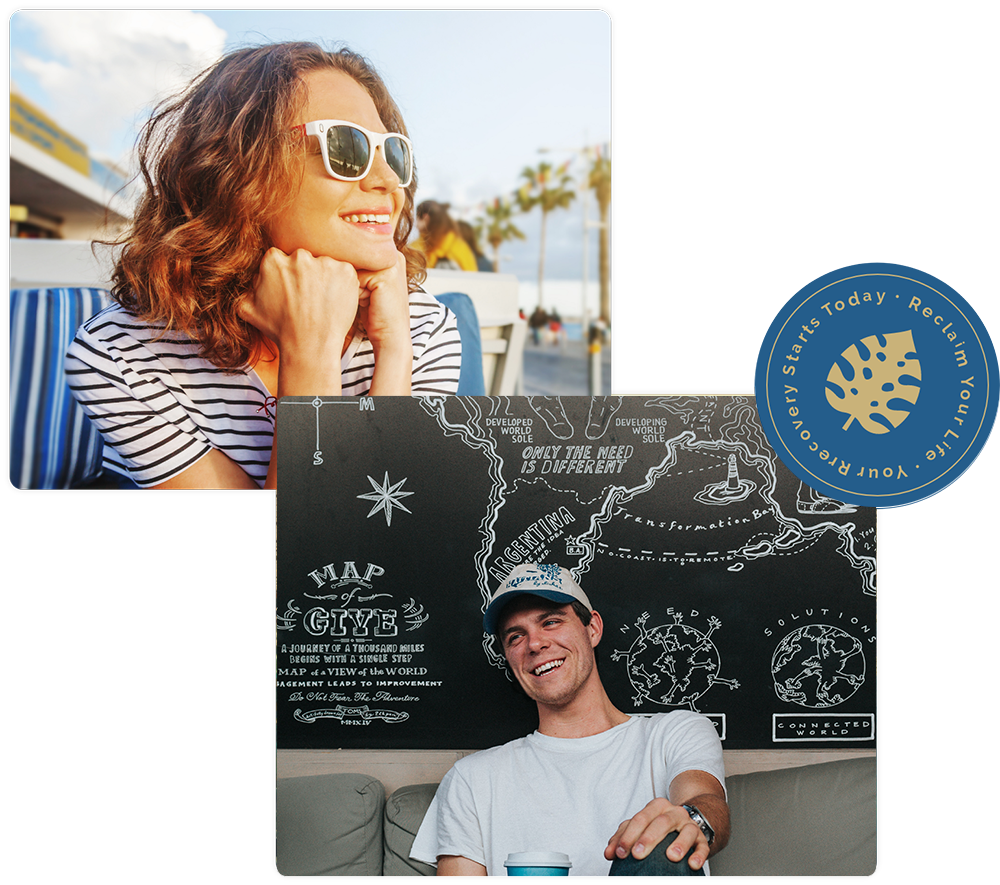It isn’t often people choose to become addicted to anything. More often than not, outside circumstances play an important role in pushing people to take up smoking, drinking, or abusing any kind of substance. This seems like an obvious enough correlation to draw, but many rehab programs only spend time addressing the symptoms of drug abuse without considering the possibility of co-occurring disorders.
A co-occurring disorder is any case where two disorders are entangled at the root. For example, someone who has recently fallen into a state of depression is likely to take up drinking alcohol as a remedy. Since alcohol is only a temporary form of relief, their depression worsens, as does their reliance on alcohol—for both chemical and psychological reasons. The only approach that solves the issue of a co-occurring disorder is a dual diagnosis treatment program. As the name implies, it treats both facets of the problem with equal importance.
At Footprints Beachside Recovery, we use dual diagnosis as a core pillar of our evidence-based treatment. To learn more about why we consider our clients’ mental health a keystone of recovery, don’t hesitate to contact us at 727-954-3908 today.
The Deep Connection Between Addiction and Mental Health
Mental health has everything to do with addictions and substance abuse. Individuals with certain psychiatric disorders are at a significantly higher risk of using drugs to self-medicate. A large part of the reason this happens is that drugs generally provide some form of relief, whether it’s numbness, euphoria, or somewhere in between. Some of the most commonly co-occurring mental disorders involve feeling emotionally unstable or consistently unwell:
- Anxiety disorders
- Attention-deficit/hyperactivity disorder (ADHD)
- Depression
- Bipolar disorder
- Post traumatic stress disorder (PTSD)
- Schizophrenia
- Obsessive-compulsive disorder (OCD)
Even though most people are at least aware that drug use comes at a cost, some are willing to pay for what is ultimately a temporary measure carrying long-term consequences. The fact that so many drug addicts grapple with mental health means that more than anything else, they need a treatment plan that covers both their mental well-being and their drug addiction. Dual diagnosis is the most widely accepted means of doing so, being a standard at most rehab centers nationwide.
How Best to Treat Co-Occurring Disorders
Dual diagnosis is not a type of therapy. Instead, diagnosing clients with two disorders is the first step of many in an individual treatment plan. Different types of therapies exist to manage both halves of the dual diagnosis. The type of therapy that works best differs from person to person, so our team is trained to help determine which suits you best:
- Individual Therapy
- Group Therapy
- Family Therapy
- Trauma-Informed Groups
- Nutrition and Fitness
- Holistic Therapy Activities
Taking the holistic route means that no part of your lifestyle is left out. Each type of therapy can be integrated into your dual diagnosis treatment. Some strategies can build a sense of self-awareness and confidence, like talking to a therapist, a peer, or family members about how your mental wellness impacts substance abuse. Others can help you take care of your personal needs, such as maintaining physical fitness or exercising your creativity.
What You Can Expect at Footprints Beachside Recovery
Handling co-occurring disorders can often be more complex than the sum of its parts. At Footprints Beachside Recovery, we understand that fact better than most other rehab centers. Each of our team members has some personal experience with the trials of addiction. With over a decade of service, we feel uniquely suited to treat our clients through evidence-based therapies and individualized treatment plans. Learn about the variety of programs we offer by filling out our online form or by calling us at 727-954-3908 today.


